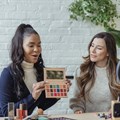Influencers have redefined how brands are built—and who builds them. Whether it’s a catchphrase that goes viral, a branded hashtag that drives engagement, or a nickname that becomes synonymous with a product, social media creators are increasingly shaping brand identities from the outside in.

Image source: rawpixel.com from
FreepikWhen the influencer becomes the brand builder, a thorny question arises: who owns the trade mark?
This question is not merely academic. It cuts to the heart of commercial value, legal entitlement, and brand control. As businesses and influencers continue to collaborate in the digital space, understanding the trade mark implications of influencer-created branding is more important than ever.
The influencer economy and brand creation
Influencers often develop highly curated identities and personal narratives. They create content that resonates with niche audiences and leverage trust to promote third-party products. But in some cases, influencers go beyond promotion - they coin a phrase, design a hashtag, or become so closely associated with a slogan that their personal identity becomes inseparable from the brand's image.
Take, for instance, the South African beauty influencer who coins a hashtag for a make-up campaign that goes viral and is later adopted by the brand as a tagline. Or, for example, the Vine user Kayla Newman who reportedly used the phrase “eyebrows on fleek” in one of her videos which then went viral, resulting in the phrase “on fleek” even being used by celebrities.
In Petunia Products, Inc. v Rodan & Fields, LLC and Molly Sims, United States District Court for the Central District of California, a cosmetic company, Petunia Products owned the trade mark Browboost in respect of an eyebrow product. A competitor then advertised its own eyebrow product ‘Brow Defining Boost’ on social media with the hashtag ‘Browboost’ and employed an influencer, Molly Simms, a well-known fashion model, to blog about the product.
The court held that a social media influencer could be sued for direct trade mark infringement when endorsing products.
These moments raise more than ethical questions; they raise legal ones. If the phrase/hashtag has trade mark potential, who has the right to register and enforce it?
Trade marks: The basics of ownership
Under South African trade mark legislation, a trade mark must be a mark capable of distinguishing the goods or services of one person from those of another. Ownership of a trade mark in South Africa is generally established by registration, though a person may acquire common law rights through use of the trade mark.
In the context of influencer marketing, complications arise when it is unclear who first used the mark or whether the influencer was acting as an agent, employee, or independent contractor.
A key factor when considering proprietorship of a trade mark, is whether it was the influencer or the retailer who originated the mark or adopted the mark for use as a trade mark, during their engagement with each other.
Who coined it, and why it matters
Let’s say an influencer organically coins a phrase in their content, without direction from the retailer, and it catches on. If they then continue to use the phrase in commerce, selling merchandise, for instance, they may well have established trade mark rights through use. In this case, they would likely be able to oppose the retailer’s later registration attempt or even bring an action for passing off.
Conversely, if the retailer provided the slogan, or if the influencer’s contract made clear that all intellectual property created during the engagement belongs to the retailer, the balance may tip the other way. Many current influencer agreements are silent or vague on IP ownership, which is fertile ground for dispute.
Contracts are key
One of the most effective ways to manage IP ownership issues is to address them upfront in a written agreement. This should specify:
- Whether any slogans, phrases, or branding developed by the influencer are the property of the retailer or the influencer.
- If owned by the retailer, whether the influencer has the right to use any such IP after the campaign ends.
- If owned by the retailer, whether the influencer has any obligation to assist in the retailer in the registration or enforcement of such trade marks.
If influencers are to retain rights in a particular phrase or identifier, this should be clearly recorded - especially if they intend to commercialise them independently. Ambiguity in this regard often leads to legal uncertainty and reputational risk on both sides.
The public perception test
Another layer of complexity lies in the perception of consumers. If the public strongly associates a mark or slogan with a particular influencer, even if a retailer has registered it, there may be reputational fallout if enforcement is perceived as heavy-handed. Retailers must tread carefully in asserting trade mark rights where public sentiment leans toward the influencer as the rightful originator.
Likewise, influencers should be mindful that merely using a phrase or hashtag, even if popular, does not automatically confer trade mark rights, especially if they fail to use it consistently as a badge of origin or fail to take steps to formalise protection.
Navigating the grey areas
In a digital-first world, the creation and ownership of branding is increasingly collaborative and decentralised. This demands a more nuanced approach to trade mark strategy—one that recognises the growing role of content creators in the brand ecosystem.
From the perspective of both retailers and influencers, clear communication, contractual clarity, and proactive IP strategy are critical. If a phrase or identifier has the potential to become an asset, consider early trade mark registration and agree in writing who owns it, and how it may be used.
The reality is that in the age of the influencer, brand equity is not only built in boardrooms, it’s born at home, in cafes, and content feeds. Recognising and protecting this value requires trade mark law to meet the moment with both foresight and flexibility.




































